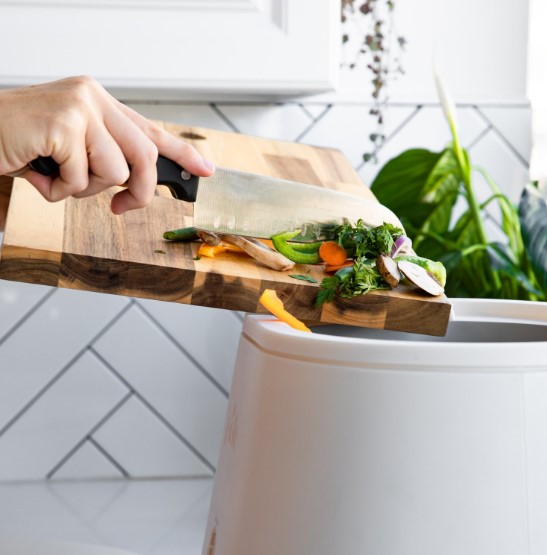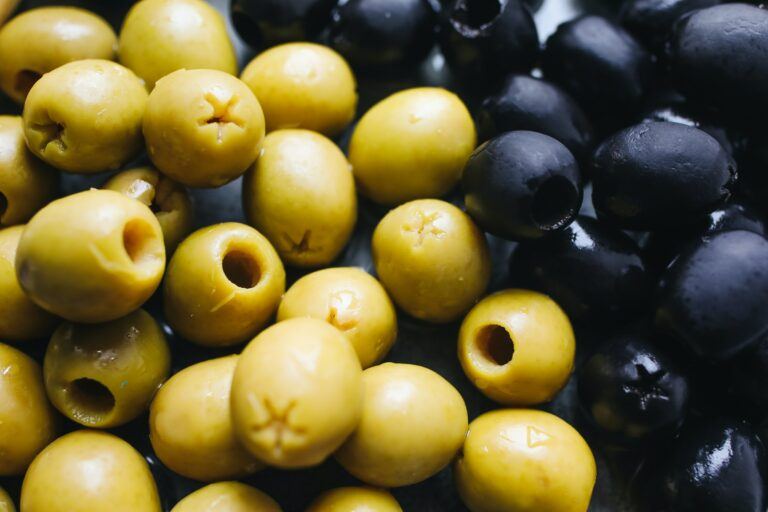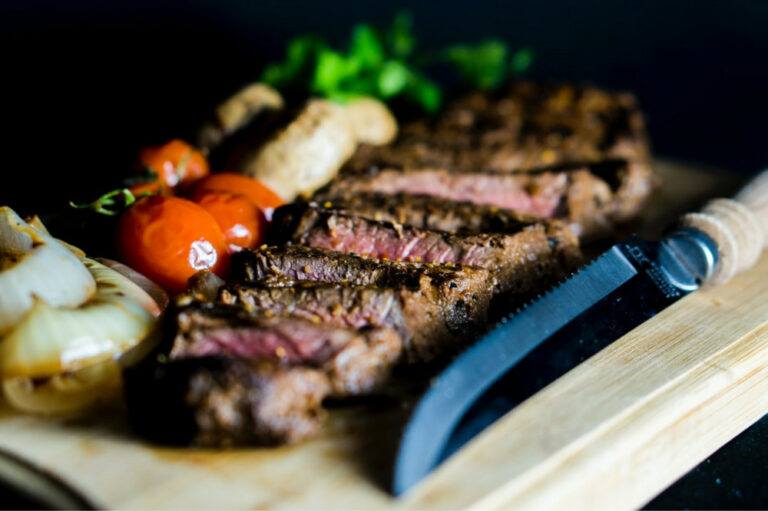How to Dispose of Used Cooking Oil

As much as I enjoy cooking for myself and my family, the clean up process can be a bit of a hassle. Among the worst is having to figure out how to dispose of used cooking oil or grease. Part of the reason why this is so difficult is because most people don’t know how to dispose of cooking oil besides throwing it out or dumping it down the sink. That’s why I’m here to help!

As an Amazon Associate I earn from qualifying purchases. When you use the links on this page to make a purchase I may get a small commission and you may get a great bargain. It’s a win-win all around. Support my page and I can continue to provide great tips, recipes, reviews and lifestyle advice. Ask me how by clicking here!
Different Types of Cooking Oil
There is such a wide variety of oils that are great for cooking and baking that it is helpful to first familiarize yourself with some of the different types of cooking oil. Among the more common cooking oils are extra-virgin olive oil, vegetable oils (like Canola), coconut oil, and peanut oil. Additionally, avocado oil and sesame oil are also great alternatives for cooking. Most people switch off between different oils for health reasons or for their distinct tastes.
Each of these can be used in a variety of ways and serve different purposes at varying temperatures. Below I’ve listed the preferred ways of cooking with these different types of oils as well as their recorded smoke points:

- Canola Oil and Vegetable Oil: great for sauteing, roasting, and stir-frying (400 ℉)
- Extra Virgin Olive Oil: sauteing on very low temperatures but best for salads (370 ℉)
- Light Olive Oil: sauteing, roasting, and grilling (470 ℉)
- Refined / Virgin Avocado Oil: perfect for grilling, baking, sauteing, searing, frying, and roasting (480 – 520 ℉)
- Refined Coconut Oil: roasting and sauteing (450 ℉)
- Virgin Coconut Oil: sauteing at low temperatures (350 ℉)
- Refined Peanut Oil: frying and stir-frying (450 ℉)
- Virgin Peanut Oil: Used as added flavor in dips or dressings
- Sesame Oil: stir-frying, sauteing (350-400 ℉) and used as a condiment
How Do You Dispose of Cooking Oil at Home?
Once you’ve finished cooking with either of these oils, there are just a few steps you should take to make sure you are disposing of cooking oil correctly. This is incredibly important because incorrectly disposing of hot oils can cause a number of problems for your sink and toilet drains and can be hazardous to just throw away. So, after cooking with one of these oils, what should you do? Here are some dos and don’t regarding the best way to dispose of cooking oils at home!
DO:
- Try to reuse/recycle the oil – most oils can be reused if they have not been heated past their smoke points that I previously mentioned
- Let the oil cool – make sure the oil has a chance to cool into a more solid substance
- Pour into container – make sure the container is disposable; for extra precaution you can put this container into a plastic bag as well
- Throw the container into the garbage – this can be thrown in with your everyday trash; make sure it is completely sealed
DON’T:
- Pour hot oil down the sink or toilet – the hot oil or grease can coat and stick to your pipes and clog them once the liquid solidifies
- Pour hot oil directly into the garbage – hot oil can also cause problems with garbage trucks and solid waste
- Pour hot oil outside – hot oil can seep into the ground and cause problems for wildlife as well as make its way into the sewage systems
- Mix oil with compost – too much added oil can cause an imbalance within your compost and ruin it as a fertilizer
Is Dumping Cooking Oil Illegal?
Due to the severe environmental risks that it can cause, it is actually illegal for restaurants and other food services to improperly dump their used fryer oil and grease. Because of the way that grease and hot oil have the tendency to harden and clog drains and sewers, the environmental risks are great. Generally, local sewage plants and waste management are unable to process the large amounts of cooking oil that is discarded by such establishments.
All this to say, although it is not illegal for someone to incorrectly dump cooking oil at home, the negative impacts that it has on the environment are not to be taken lightly. Problems with air and water pollution and fire hazards are a perfect reason to make sure you are disposing of your used cooking oil in the correct way.
What is a Cooking Oil Disposal Container?
A cooking oil disposal container can really be any household item that you can pour the cooled kitchen grease into and seal it for disposal. When looking for a disposable container to store and throw away your used cooking oil you can get pretty creative. Old plastic butter containers and metal coffee cans are great for those who wish to freeze or refrigerate the oil before throwing it away. You can also use empty milk cartons or other old glass jars to ensure that the oil is securely sealed within the container.
How to Dispose of Cooking Oil
Despite all this, there are times when you look around your kitchen and can’t find an available container for disposing your cooking oil. I’ve experienced this myself and just feel that it’s better to always be prepared for quick and easy oil disposal. Here are some containers specifically made for the proper disposal of cooking oil:
1. Grease Daddy
Grease Daddy’s 12 ounce bags come in a pack of 6. They are each made of heat resistant packaging and come with a simple press seal. With these bags you can pour used cooking oil and grease directly from your frying pan instead of dumping it down your drain and ruining your pipes.
- Pros: Heat resistant, Comes With 6 Bags, Zipper Seal, Disposable
- Cons: Small Bags, Oil Cannot be Recycled


2. Bacon Grease Container with Fine Mesh Strainer
Made of 304 stainless steel with a dust proof cover and fine mesh filter, this bacon grease container can hold up to 1.7 liters of used cooking oil. The fine mesh strainer removes leftover pieces of food or bacon for easy recycling and the curved spout at the top makes for drip-proof, smooth pouring when transferring the grease. This model is also dishwasher safe with a non-stick exterior coating.
- Pros: Heat Resistant, Fine Mesh Strainer, Multi-Purpose
- Cons: Not Disposable

3. Bacon Grease Container with Strainer
This bacon grease holder is a 1.3 liter stainless steel container with a strainer to catch the scraps of food for those who wish to reuse their cooking oil. This package also includes two silicone oven mitts as well as a silicone protective mat to rest the disposal container on. Although the container is mainly for storing and disposing of cooking oil, it can also serve a variety of purposes in the kitchen and is easily cleaned.
- Pros: Heat Resistant, Strainer, Comes With Silicone Oven Mitts and Hot Pad, Multi-Purpose
- Cons: Not Disposable, No Spout

 Check Best Price Here on Amazon >>
Check Best Price Here on Amazon >>Each of these products are great for temporarily storing and disposing of your used cooking oil and grease. Not only can properly disposing of your kitchen waste help the environment, but it can also save you a great deal of money and stress when it comes to your plumbing. I hope you find these tips for how to dispose of cooking oil and products helpful!










I LOVE this article! So much helpful information and Answered so many of my questions. I always struggle with what to do with used cooking oil and very rarely have a container on hand for disposal. I never knew there were containers made for oil disposal. Ordering the grease daddy bags now! Thank you!
Hi Lori! Thanks for your nice comment. Let me know how you like the Grease Daddy bags.
This is a very educational post on how to dispose of cooking oil. I hardly ever deep fry food and if I do have small quantities of oil, I normally mix it in with the dog’s food, and she loves it. I also give her any chicken fat or bacon fat. But I had not realised that disposing of old oil in restaurants could be a big problem and an environmental concern.
Thanks for this tip on the grease daddy bags, they will come in very handy when I do need to dispose of old oil.
Hi Line! Yes the grease daddy bags are very handy. Thanks for stopping by.
I should share this post with my extended family. Since I am from a South East Asian background, my family members do a lot of deep frying in their regular cooking (super unhealthy, I know!) and I have always cringed at the thought of disposing all that oil down the drain.
These bags you have listed are interesting! Thanks for sharing!
Hi Sasha! Thanks for stopping by.
As I read this post, it reminds me of an incident, as a kid I had accidently poured the hot cooking oil in a glass container….and in few seconds the container cracked and I learnt my learnt my lesson 🙂 You have listed some key points and containers to dispose the oil.
We use a grease disposal system that has a plastic container with foil-lined bags that that hold upto 1 litre oil. You can put the used cooking oil (cooled) in the bag, then seal it and throw into garbage.
Hi Satz! That must have been a huge mess. Yes the disposal bags would help alot. Thanks for stopping by.
It was a delight to read this article. I did not know that they sold disposables to throw out our grease. I do have one of those metal containers with the spout, that I use when I am recycling. It works just fine, and I love it.
You are so correct that there are times when I can’t find a container at home to dispose of my grease and so Grease Daddy does make sense to have a few around. Thanks for the heads-up.
Hi Josephine! Yes the disposables are convenient to have around. Thanks for stopping by.
Thanks for sharing all of your useful tips!
Disposing of oil and grease is one of my least favorite parts of cooking, so those container suggestions are really helpful. I’ve thought about saving chicken grease to use in other recipes and those grease containers would be perfect for that.
Hi Leah! I’m glad my article can help. Please let me know if you have any questions?
I’ve struggled a lot with having to clean my sink after a messy dinner cooking. Knowing what to exactly do with the remaining cooking oil has like a hammer hitting me to the day. Recently though, I have figured out that’s not a good idea to just throw It into the sink, for the number of reasons you mentioned above, but what exactly should I do with that I was not quite sure about it.
Thank you for this wonderful article. I learned a lot from it!
Hi Hekuran! Thanks for stopping by and I’m glad my article how to dispose of cooking oil can help.
Great article I’m gonna have to have my wife read this maybe then she would listen to me she has poured grease down the sink several times and guess who has to unclog it I will defiantly try the grease bags those seem like a very good idea thank you for info.
Hi Jeff! Oh no, be sure not to put grease down the sink. Let me know how you all like Grease Daddy.
Very helpful to know. Cooking with oil can really bring out some great flavors and textures in foods, but the mess of dealing with cooking oil can deter us from those cooking methods. There were some innovative disposal methods on here that I’ve never heard of before. This could be a big help towards keeping our kitchen and environment clean!
Thank you Alyse, for this informative article. Respect you did a great job. I hardly ever use much oil. But when my family is visiting us, they like french fries or other baked dishes. Then I have a problem. Now I finally have a solution. Thank you, this is very important to me. We live in the country, so you can’t pour waste oil into the zinc. I love Grease Daddy. I’ll be ordering some in a minute.
Monique
Hi Monique! Please let me know how you like Grease Daddy! Thanks for stopping by!
Hi Alyse, this article has been useful because I have definitely been disposing off cooking oil the wrong way for a very long time. I usually pour it down my sink and I realised it clogged my sink for a while which gave me hell for days. I think it will be more convenient if I get a container specifically for keeping these oils I don’t want to use again and just dispose this container when its full because im not so sure I will like to recycle the cooking oil.
I hope more people read this article because honestly it has been very useful to me. Keep up the good work and Cheers
I appreciate you bringing out the necessity of properly removing used cooking oil. As you indicated, it can be dangerous to toss out heated oils because improper disposal of them can result in a multitude of issues with your toilet and sink drains. To ensure that the used oil is disposed of correctly, it would be a good idea to hire waste oil collection. I’ll surely let my relatives and friends know about this so they can keep it in mind and look into used oil collection businesses that might be able to assist her.
It was a useful tip when you told us to use a disposable container when it’s time to dispose of used cooking oil since this will serve as an extra precaution for proper oil disposal. I opened a coffee shop in Southern Australia around a week ago, and since we have food on our menu as well, I need to know how to properly dispose of the cooking oil we use to prepare for them. I’ll take note of this while I look for a waste oil disposal center operating in Southern Australia to contact when it’s time for us to throw out our old and used oil.